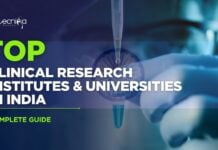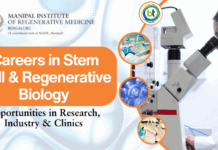Is Depression Being Over Diagnosed? – Voice of Biotecnika
Episode No: 43
In our daily life, we come across many people, often I wonder what exactly is going on, in the mind of so many different people.
Surprisingly it reminds me of a famous quote by H. W. Longfellow –
“Every man has his secret sorrows which the world knows not, and often times we call a man cold when he is only sad.”
Now that might sound like the man has depression but is it so? In that case, all of us end up having one, right? Or is the condition analogous to the “Jaundice eye”? I wonder………Although the information on this topic is immense but Mental health is something less discussed among all other illness.
So, today we try to analyze this aspect of our life, which we often ignore or aren’t aware of, even many of us assume more than what it really is. In the current busy world are we all depressed or it’s just a myth.
Let’s try to find out in today’s podcast “Is depression being over-diagnosed?” presented by Biotecnika team member Sunita.
Listen to this podcast on SoundCloud
Depression is a serious
mood disorder which has quite a common occurrence. It is characterized by persistently low mood and a feeling of sadness and loss of interest. Depressive disorders affect large numbers of children, adolescents, middle-aged groups and the elderly, both men and women. Usually, the symptoms are quite severe that can affect daily activities such as working, sleeping, eating, etc. Moreover, it can also affect the way one thinks or feels. These, in turn, lead to loss of productivity, increased health care costs and significant emotional suffering.There are some sign and symptoms of depression like depressed mood, reduced interest or pleasure in activities previously enjoyed, irritability, helplessness, low appetite, insomnia (difficulty sleeping) or hypersomnia (excessive sleeping), fatigue or loss of energy, feelings of worthlessness or guilt and recurrent thoughts of death or suicide, or attempted suicide. Along with all these, some even show physical symptoms such as unintentional weight loss (without dieting), psychomotor agitation, in form of restlessness, pacing up and down and delayed psychomotor skills, for example, slowed movement and speech. Many complain of aches or pains, headaches, cramps, or digestive problems without a clear physical cause and/or that do not ease even with treatment.
Often depression is linked to suicide. In the worst cases, it can lead to deliberate self- harm and suicide. Thus, it becomes very essential to identify depression at an early stage so as the chances of suicide can be reduced.
Based on all these we can say that the nature, severity, and frequency of symptoms vary from person to person and even depend on the stage of the illness. So, everyone may not experience all the symptoms at all. Some even show a few of the mentioned symptoms which might be too much severe. Thus, merely having one or two symptoms doesn’t mean it’s a depression. Because of the variation in pattern and onset, it can be further classified into different types, for example, Persistent depressive disorder, Postpartum depression, Psychotic depression, Seasonal affective disorder, etc.
The causes of depression are several, including biological, social, economic and cultural factors, and environmental factors. More often it is a combination of many factors that can lead to depression. As such the onset is commonly seen around adulthood in the majority of cases, but it is now recognized to be occurring in children and adolescents as well. The symptoms might be different in these cases. Generally, it is manifested in the form of prominent irritability and high anxiety.
In older adults, depression is both a cause and consequence of several noncommunicable diseases like diabetes, heart disease, cancer, and Parkinsons’s disease. It found in such cases these conditions become worse if depression is present. Even certain medicines can cause side effect which can contribute to depression.
Other causes are found to be substance use disorders and nutritional disorders. It is also adversely associated with chronic communicable diseases like TB, HIV, and others.
Some of the risk factors which make a person more susceptible to depression are:
1. Life events such as bereavement, divorce, a stressful relationship, work issues, financial problems, or acute stress.
2. People with traumatic past life experience.
3. Genetic factors like having a first-degree relative with depression.
4. Medication including corticosteroids, some beta-blockers, interferon, etc.
5. Abuse of recreational drugs such as alcohol, amphetamines.
6. A past head injury.
7. A past episode of major depression.
8. Chronic conditions, such as diabetes, chronic obstructive pulmonary disease, and cardiovascular disease.
Whatever be the cause, the outcome is quite taxing from a personal, emotional, economic and social scenario and has an impact on the overall quality of life. It is seen that people with depression often face discrimination at a personal and professional front. They are stigmatized and excluded by family and society. Since the working efficiency of an affected person might decrease, it can have a huge and unmeasured economic impact.
Now, imagine one person affected is detrimental to a family but the majority of the population affected is, detrimental for a Nation overall. Thus, it becomes very important to address the issue at the earliest, by strengthening the healthcare system, early detection, continuous monitoring, and removal of stigma by bringing social awareness.
If we focus on the treatment, many ways are available. The usual choice of treatment is based on the severity and type and can range from self-help to brain stimulation. Usually, combination therapy is followed involving counseling, cognitive behavioral therapy, interpersonal therapy, psychodynamic psychotherapy, along with medication like an antidepressant, lithium, etc. For severe conditions which fail to respond to all other treatment, require brain stimulation in the form of Transcranial direct current stimulation, Repetitive transcranial magnetic stimulation, and electroconvulsive therapy.
Now coming to the most difficult part i.e diagnosis. As such, there is no test like a blood test to detect depression. It is because the symptoms vary a lot, so developing an absolute diagnostic test is not possible or may yet to be done. Most of the cases, symptoms are monitored, the complete history of the patient is taken and even physical examination and other test are performed to rule out the chances of other diseases.
The doctor or a mental health professional carry out a mental health assessment, which is a detailed and comprehensive interview. It includes questions about symptoms and their impact on work and relationships, any previous episodes, drug and alcohol use, medical conditions and family history. Along with it is equally important to assess the risk of suicide or self-harm. The patient might be asked to keep a daily record of moods, sleep patterns, or other activities that may help with a diagnosis. Further feedback might be obtained from family members and close friends about the patient’s symptoms
With this, we can understand there can be biases involving the diagnosis of depression. According to a study conducted at Johns Hopkins University, many cases of overdiagnosis have surfaced. Over 5000 adults participated in the study, mainly those who have been diagnosed with depression by a clinician. In the study, the same people were independently assessed for major depressive episodes using a structured interview, which is nothing but a face-to-face interview following the set standard. The outcome of the study was very surprising and gave a completely different outlook to condition. Out of 5000 or so, only a minority approx. 38.4 %, met all the official diagnostic criteria for depression. So, the rest of the people were not having any such sever problem, yet irrespective of their actual condition all of them were prescribed and were using psychiatric medication.
This study clearly indicates the casual nature of depression assessment procedure being followed presently. Many cases the person diagnosing the condition might not be qualified enough to carry out comprehensive structured interviews. Even on some occasions many mental health professionals also go for such informal assessment rather than recommended comprehensive psychiatric interview, the latter being a time-consuming process.
Such hasty, informal and intuition-based assessment leads to error in diagnosis. A low threshold for diagnosing clinical depression risks treating normal emotional states as illness challenges the assessment credibility and risking inappropriate management.
Perhaps, we should reconstruct the assessment criteria and threshold. But it has its own “cons”. Redefining of the assessment threshold might lead to underdiagnosis. Anything not fulfilling the criteria might not be considered at all. In cases of minor depression -persistent symptoms, if not detected and treated early latter might lead to full-blown serious depression in the future.
On the other hand, increase diagnosis may not be that bad. It has the benefit of early detection and timely treatment. Most major mental disorders start before the age of 25 years, which can affect lifetime productivity and quality of life. Early treatment can stop the condition from worsening into secondary medical, health, educational, and social comorbidity. Moreover, it can reduce social stigma, increase wider public awareness, remove any structural impediments to employment and health benefits, and reduce alcohol and drug misuse.
So after all, what we understand that people are divided either in for or against the topic. But there is one more aspect that needs to consider before we draw any conclusion. The missing point is not about overdiagnosis but more about overprescription. Do all patients really need the anti-depressants? With the current trend of a boom in pharmaceuticals, many drugs are being marketed, and physicians, as well as patients, have a notion that taking medication might be the most effective way of treatment. But most of the cases it may not be so. Meta-analyses of patient groups under anti-depressant drugs over other psychotherapies and placebo show minimal differences. These differences are more unclear when we consider minor depression. So, rethinking the treatment procedure is also the need of the hour, where including other psychotherapies rather than just prescribing anti-depressant could be a better option.
Clearly, reformations are needed in many aspects of diagnosis, treatment, and social perspective. The onus of the change lies with physicians, mental health professionals, care providers, drug manufacturers, and even the patients. On the whole, society needs to reform itself for the greater good.
With this note, I sign off with you to judge – Is Depression Being Over Diagnosed? Do let us know what are your views on this topic? Where do you stand?
 from IIT Kharagpur and is experienced in subjects like Cell Biology and Immunology. Being a passionate educator, Dr. Sunita keeps herself up-to-date with current research and shares the same with her students through after lecture activities like Pictionary, discussions, etc. She encourages each one to reach their full potential and has been an influential role model. In this Podcast she throws light on the topic – Is Depression Being Over Diagnosed?
from IIT Kharagpur and is experienced in subjects like Cell Biology and Immunology. Being a passionate educator, Dr. Sunita keeps herself up-to-date with current research and shares the same with her students through after lecture activities like Pictionary, discussions, etc. She encourages each one to reach their full potential and has been an influential role model. In this Podcast she throws light on the topic – Is Depression Being Over Diagnosed? Listen to Podcast on – Is Depression Being Over Diagnosed? and others on our Youtube Channel.








































